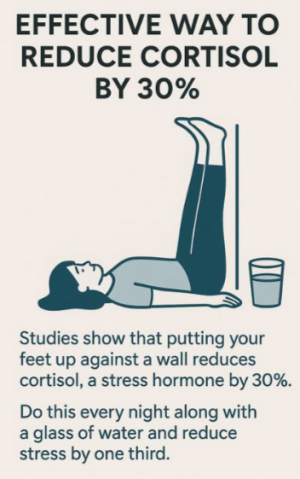Oneanne
DIS Veteran
- Joined
- Apr 21, 2014
- Messages
- 5,513
TOPIC TUESDAY

Currently trending... Cortisol
In my FB and IG feeds I keep seeing posts about cortisol, it seems to be the health-thing-de-jour. Have you ever looked into your cortisol levels? Have you ever done any self-management for cortisol levels?
Cortisol is a hormone produced by the adrenal glands that plays a crucial role in the body's response to stress.
Factors Affecting Cortisol Levels:
High cortisol levels can cause symptoms such as:
Weight gain, Thinning skin, Acne, High blood pressure, Diabetes, and Osteoporosis.
Low Cortisol Levels (Hypocortisolism):
Low cortisol levels can cause symptoms such as: Fatigue, Weakness, Low blood pressure, Salt cravings, and Nausea.
Testing Cortisol Levels:
Cortisol levels can be measured through a blood test or a saliva test. Your doctor may order these tests if you have symptoms of high or low cortisol levels.
Treatment:
Treatment for abnormal cortisol levels depends on the underlying cause. For example, if high cortisol levels are caused by stress, managing stress through techniques like exercise or meditation can help. If there is an underlying medical condition, it may require medication or surgery.

Currently trending... Cortisol
In my FB and IG feeds I keep seeing posts about cortisol, it seems to be the health-thing-de-jour. Have you ever looked into your cortisol levels? Have you ever done any self-management for cortisol levels?
Cortisol is a hormone produced by the adrenal glands that plays a crucial role in the body's response to stress.
Factors Affecting Cortisol Levels:
- Stress: Physical or emotional stress can temporarily increase cortisol levels.
- Sleep: Lack of sleep can lead to elevated cortisol levels.
- Medications: Certain medications, such as corticosteroids, can increase cortisol production.
- Medical Conditions: Conditions like adrenal insufficiency or Cushing's syndrome can affect cortisol levels.
- Sleep: Lack of sleep can lead to elevated cortisol levels.
High cortisol levels can cause symptoms such as:
Weight gain, Thinning skin, Acne, High blood pressure, Diabetes, and Osteoporosis.
Low Cortisol Levels (Hypocortisolism):
Low cortisol levels can cause symptoms such as: Fatigue, Weakness, Low blood pressure, Salt cravings, and Nausea.
Testing Cortisol Levels:
Cortisol levels can be measured through a blood test or a saliva test. Your doctor may order these tests if you have symptoms of high or low cortisol levels.
Treatment:
Treatment for abnormal cortisol levels depends on the underlying cause. For example, if high cortisol levels are caused by stress, managing stress through techniques like exercise or meditation can help. If there is an underlying medical condition, it may require medication or surgery.









